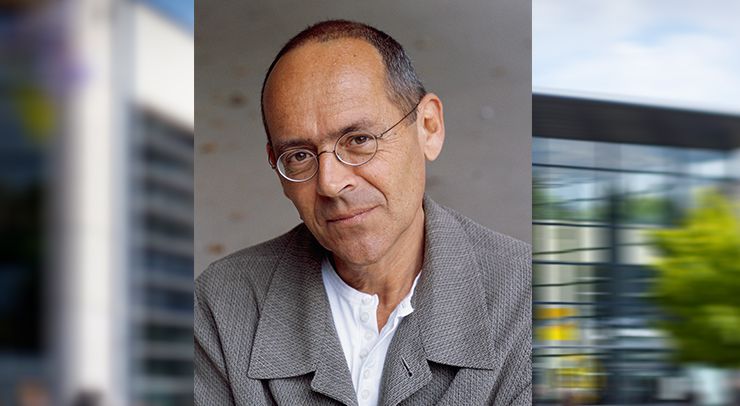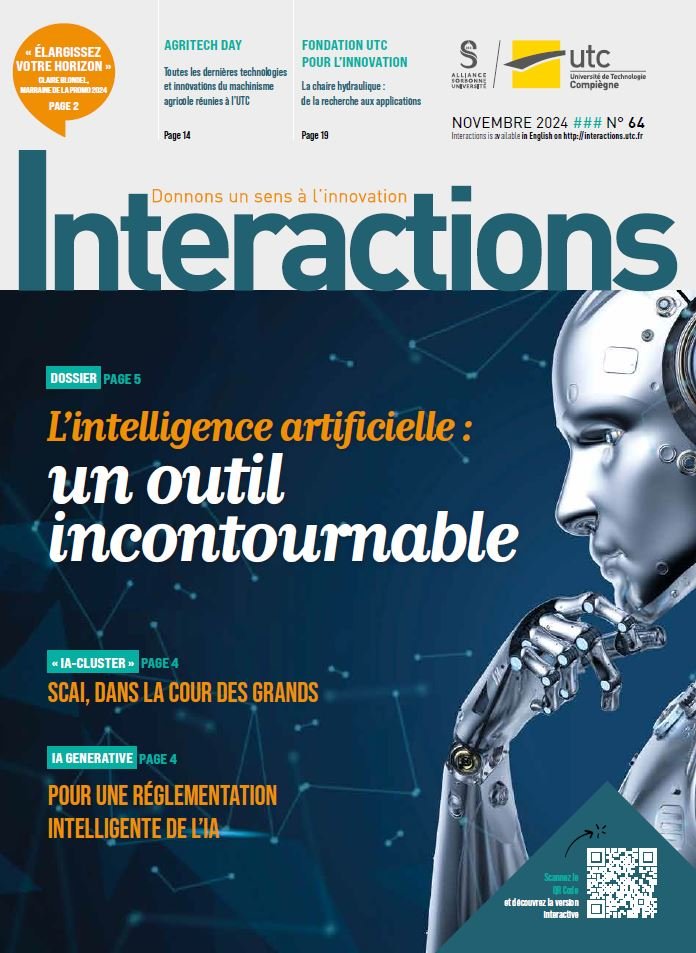Prof. Bernard Stiegler, an emblematic figure-head at UTC-Costech

Following suit to the PHITECO 2021 seminar on the theme «Reflecting on technology with Bernard Stiegler», three members of the CRED (Cognitive Research and Enactive Design) team, Charles Lenay, Professor of Philosophy and Cognitive Sciences, Florent Levillain, Senior Lecturer, and Vincenzo Raimondi, Lecturer and Research Scientist look back over the legacy of this emblematic figure from the Knowledge, Organisation and Technical Systems (Costech) Laboratory.
Bernard Stiegler, was noticed in 1988 by Liliane Vézier, then Director of the Technology and Human Sciences Department (TSH) at the UTC, as the designer of an exhibition entitled “Memories of the Future” at the Centre Pompidou, Paris.
At the same time, she was conducting a somewhat aggressive campaign to recruit temporary staff, and Bernard Stiegler, who had not yet defended his PhD thesis, was among them. At the time, there was also Véronique Havelange, who had organized a seminar on “Cognitive Sciences and Philosophy“in a European context. Bernard Stiegler, who at that time was developing an assisted reading unit for the Bibliothèque Nationale de France (BNF), made a plea — when he arrived at UTC — in favour of a philosophy involved in the innovation process. This is how the seminar “Philosophy, Technology and Cognition” or PHITECO was renamed and the most recent edition, dedicated to his work, was held in January 2021. This edition was co-organised by Florent and Vincenzo’, explains Charles Lenay who knew him in 1989 when he arrived at the UTC. Bernard Stiegler was a key figure in the field of humanities at UTC.
As a philosopher of technology, he developed a rich and profound reflection on the idea of the “technical ‘constitutivity’ of human beings”.
In short? “We speak of “ACT” or anthropologically constitutive technology. This means that being human implies being a technical being, and this has always been so. Human evolution, since the dawn of time, has taken place in a technical environment. There is no relationship of exteriority between human sciences and technology. In other words, there is not, on the one hand, Man who gives meaning and, on the other, technology which would only reflect, so to speak, on existence of material conditions. On the contrary, it is our technical environment that makes us “human”, supports our thinking, supports our consciousness of time that would not exist without our technical mediations and our technical environment. This is Stiegler’s thinking, a man of commitment and action. This is why, in 2005, he created the Ars Industrialis association in order to combat the submission of intellectual technologies to market criteria alone, for example,” he explains.
Vincenzo Raimondi agrees: “The thesis of the intermeshing of human and the technical spheres has become the DNA of Costech. It has played a fundamental role in research in our laboratory and permeates much of our work. Not only Stiegler’s research, but that also of many other research scientists.”
What is special about Stiegler’s thinking compared to other philosophers of science and technology? “Stiegler’s profound originality in relation to other thinkers of technology, such as Jacques Ellul for example, is that he does not separate the historicity of technology and that of humans. In his view, both are intimately linked, and the history of technology gives rise to a certain psychological structure in our contemporaries. Human thought is itself ‘historicised’ by its inscription in the history of technology; it is particular to a given era; it is situated in a time, an era defined by the artefacts it has constructed. Our era, for example, is the digital era, a particular form of technology that authorises certain thoughts that were unthinkable in the last century,” says Florent Levillain.
“It is thus a question of not reducing technology to something that could impoverish human experience, diminish our experiences of the world,but rather to consider it as ‘constitutive’ of our experience,” adds Charles Lenay.
However, Bernard Stiegler entertains a lucid view of the risks of drift. “For Stiegler, any technique or technology is a “pharmakon”. It can be both a remedy and a poison in the sense that it brings both solutions (curative power) and potential new problems (destructive power). This is why, in his view, all technology must be subjected to a pharmacological critique,” concludes Vincenzo Raimondi.




